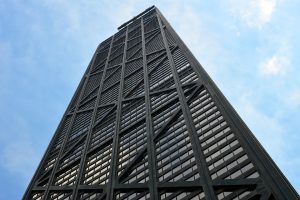In a recent article in Crain’s
Chicago Business, three business experts were consulted on how they see
Chicago shaping up in 2020. While there
has been some less-than-positive predictions for Chicago’s economy as we move
into the new year, we choose here to focus on the optimistic side of
things.
Thanks to developed in various
high-skilled industries (including technology and data), Chicago is starting to
re-gain its global-player reputation.
With Amazon, Google and Uber having recently announced local expansions
as well as the region’s universities attracting top quality students, Chicago
is developing a good reputation.
In the article’s Q&A format,
founder of the Regional Economics Applications Laboratory at the University of
Illinois at Urbana-Champaign Geoff Hewings said:
“We have a very low unemployment rate; we are creating jobs at a healthy rate, although not a dramatic one. While we’ve never expanded at the rate of New York or Seattle, I’m honestly not sure that we want that. I don’t think we need to be the fastest-growing metropolitan economy—we just need economic growth that’s manageable. Part of the draw of Chicago is its affordability. We’ve got enormous assets in that regard, and they’re necessary conditions to help us achieve economic growth.”
Director of the Great Cities Institute
at the University of Illinois at Chicago Teresa Cordova explained it like this:
“Since the mid-1970s, more and more people—particularly African Americans—have been increasingly left out of the economy. The decline of manufacturing and other middle-income jobs led to the creation of geographic pockets of chronic joblessness that just becomes entrenched for decades. And today there are incredible disparities. We did a report showing that while Cook County leads the nation in white employment, we also lead in black joblessness. The people leaving the state are disproportionately African American. This inequality affects economic growth, and it will only get worse unless we do something.”
There is some work to be done
though. According to DePaul University’s
Professor Emeritus of Economics and Federal Reserve Bank of Chicago economic consultant,
William Sander:
Addressing the pension issue is fundamental. All states struggle to some degree with pension liabilities, but it is acutely worse here. We have no choice but to pay it, and the longer we put it off, the more expensive it’s going to become. It’s complicated, though, because real action requires changes to the whole system. Politically, that’s hard, but the alternative is even harder on the taxpayer.
These are just some of the issues to observe
in 2020 in Chicago.



